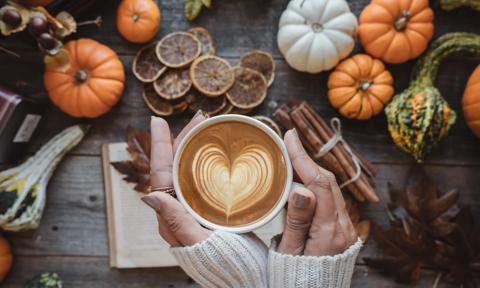
It’s that time of the year again when the oldest dictionary publisher in the world, Merriam-Webster, officially announces the new additions to the dictionary for the year.
“Some of these words will amuse or inspire, others may provoke debate. Our job is to capture the language as it is used,” said Peter Sokolowski, Merriam-Webster’s editor at large, in a statement, “Words offer a window into our ever-changing language and culture, and are only added to the dictionary when there is clear and sustained evidence of use.”
Along with newsmaking terms like ‘Shrinkflation’ (“the practice of reducing a product’s amount or volume per unit while continuing to offer it at the same price”) and ‘Metaverse’ (“a persistent virtual environment that allows access to and interoperability of multiple individual virtual realities”) and some Internet slangs, like ‘yeet’ (“to throw especially with force and without regard for the thing being thrown”), the dictionary has added several food-related terms too.
The subject of a thousand ‘White Girl Things’ memes and an autumn/winter favourite ‘pumpkin spice’ made the cut this year to be included in the dictionary. The official definition says that it’s “a mixture of usually cinnamon, nutmeg, ginger, cloves, and often all spice that is commonly used in pumpkin pie.”

In addition to ‘pumpkin spice’ and ‘oat milk’ (“a liquid made from ground oats and water that is usually fortified, as with calcium and vitamins, and used as a milk substitute”), international cuisine-related terms like ‘banh-mi’ (“a usually spicy sandwich in Vietnamese cuisine consisting of a split baguette filled typically with meat, such as pork or chicken, and pickled ve getables, such as carrot and daikon, and garnished with cilantro and often cucumbers.”) and ‘omakase’ (“a series of small servings or courses (as of sushi) offered at a fixed price and whose selection is left to the chef’s discretion.”) have also been included.

Recent food-related buzzwords can also be found in the dictionary, including ‘sessionable’ (“having a light body and a lower-than-average percentage of alcohol.”) and ‘plant-based’ (“made or derived from plants or consisting primarily or entirely of food, such as vegetables, fruits, nuts, oils, and beans, derived from plants.”). Some of the other words include, ‘birria’, ‘ras el hanout’, and ‘mojo’.
So how does a word get into the dictionary? Merriam-Webster has this to say, “A word gets into a dictionary when it is used by many people who all agree that it means the same thing. If your toddler nephew invented a great word that the English language simply can’t do without, don’t write to us to recommend that it be added to the dictionary. Use it. First, you drop the word into your conversation and writing, then others pick it up; the more its use spreads, the more likely it will be noticed by dictionary editors, or lexicographers. If your nephew’s word is one that English speakers decide we need, it has a good chance of getting into the dictionary.”
The more you know!
- Quick links
- dictionary
- Food






